Meaningful Dialogue
a season at Victory Gardens Theater
As a field, we talk frequently about the results of season planning, but we rarely are given the opportunity to examine the myriad decisions season programmers need to make. Transparency about this demanding and sometimes exasperating process could be helpful to the relationship between artists and theater organizations as well as a fascinating read for all of us who enjoy performance. Find the rest of the series here.
I knew Chay Yew as a playwright and director long before he became the artistic leader of Victory Gardens Theater in Chicago. I hoped his perspective as a once (and now only sometimes) freelance artist would add invaluable insight to the series. He didn’t disappoint. – Fran Kumin
Fran Kumin: Tell us about Victory Gardens Theater. What is the mission of the theatre? What are the size and type of your performance facilities?
Chay Yew: We develop and produce new, dynamic, theatrical plays written by diverse playwrights. Most of our plays tend to focus on what it means to be American, issues of social justice, and giving voice to the underrepresented communities. We love plays that are inventive with form, structure, and language.
Through the plays, we cultivate an audience that looks like the face of Chicago, an audience that represents and reflects our city’s many communities. From board to staff, from artists to crew, we also strive for equity on all levels. In a way, we are a theatre for the people and by the people.
In 2006, we moved to the renovated historic Biograph Theater in Lincoln Park. We have two theatres: one is 259 seats; the second, upstairs, is 109 seats. Our rehearsal room has also been used as a performance space for our resident theatre companies. We’re looking to further transform this space physically into a black box theatre in the coming years. We’ve also used our theatre lobby for pre-show and post-show spoken word and musical performances. We’ll be amplifying this as regular programming in the coming year. It is our hope that Victory Gardens will become a cultural performing arts center in Chicago.
Fran: What is your upcoming season and how does it reflect what you are trying to accomplish at Victory Garden and in your community?
Chay: Building on prior seasons, our upcoming season continues the meaningful dialogue about our American citizenship with our audiences. The first play Sucker Punch is by British playwright Roy Williams about race, power, and friendship against the backdrop of the Brixton race riots. After producing the world premieres of ensemble playwright Marcus Gardley’s The Gospel of Lovingkindness (about gun violence in Chicago’s South Side) and An Issue of Blood (about the first slave revolt in America, charting the birth of institutional racism to the deaths of black men today), we thought we’d take another serious look at our city’s struggle with race and segregation through the prism of the black community in London.
Next, we revive our playwright ensemble alumnus John Logan’s thriller about the class, sexual repression, and white privilege of one of Chicago’s most infamous murder cases. Harrowing and exuberant, Never the Sinner still resounds.
Then we premiere local playwright Sarah Gubbins’ Cocked, a play about gun ownership, safety, and self-defense in a lesbian household in the Andersonville neighborhood of Chicago. This play was given a reading as a part of our IGNITION Festival of New Plays last year.
In the spring, we present the world premiere of yet another play from our last IGNITION Festival—Lucas Hnath’s Hillary and Clinton. This gorgeous and witty play isn’t a biography but a tender portrait of marriage, gender, and political power.
Finally, we will present the Chicago premiere of ensemble playwright Marcus Gardley’s comedy The House That Will Not Stand about gender, race, and the free women of color in 1836 New Orleans.
All our performances are followed by AfterWords, our nightly post-show dialogue. And, as a part of Public Programs, we present a series of about ten free events to enhance our audience’s experience of every play through town hall meetings, spoken word performances, and film screenings.
We cultivate an audience that looks like the face of Chicago, an audience that represents and reflects our city’s many communities. From board to staff, from artists to crew, we also strive for equity on all levels.
Fran: How did you go about making these selections? When did you start season planning? Who else was involved? What were the major considerations?
Chay: For us, it’s season planning every day of the year. Every time the artistic staff reads a play we love, it automatically makes it into season planning. We also reach out to our ensemble playwrights to find out if there is a play they’d like for us to consider. We take into account the immediacy and the relevance the plays have to our city and nation, and how these plays align with our mission of new work, inclusion, social justice, and what it means to be a global citizen in today’s America. We strongly consider representation—cultural, local/out-of-town, gender, etc.—ensuring diversity and equity in all our seasons. And we are very partial to local playwrights and plays about Chicago, as we believe in generating and preserving new and existing narratives and histories through our Chicago Cycle of Plays. It’s crucial our plays create civic dialogue with our audiences. For me, personally, they should all be plays I would want to direct and wished I had written.
Since we only produce on our main stage, we are always looking for plays that have thematic size that can fill our house. Smaller and intimate plays tend to get lost in our space.
Every American city is different in the way its people tell and hear stories. Plays that work in New York or Seattle may not work in Chicago. Sometimes it’s about aesthetics. Sometimes it’s content. I try to listen to my audiences and challenge them further with each play.
For season planning, I get input from my artistic staff (which includes literary manager Isaac Gomez, associate artistic producer Joanie Schultz and artistic programs manager, Monty Cole), my managing director Chris Mannelli and director of marketing Rebekah Paine. We read and discuss the plays in consideration, and deliberate about how these plays will speak to our audience throughout the entire season and how they will resonate in Chicago.
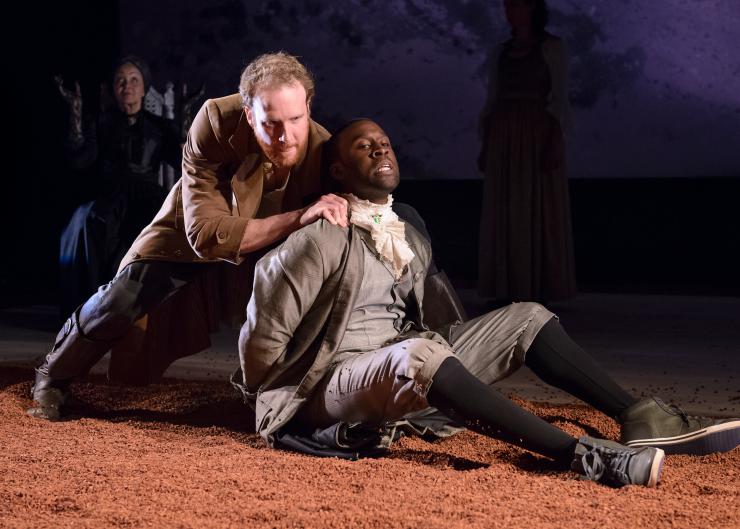
Fran: How would you characterize your audience? To what extent are they in your mind as you are programming?
Chay: Not to be prejudiced, I believe Chicago theatre audiences to be one of the best audiences in the country. Discriminating and passionate, they see a lot of theatre and the average patron has about three or four subscriptions to different kinds of theatres.
Compared to other Chicago theatres, our Victory Gardens audience skews a little younger and more diverse. They love to dialogue with our plays. There are moments where the dialogue gets tense. I remember an instance when a patron commented that gun violence in Chicago didn’t pertain to him as it was, in his own words, just “black-on-black violence.” The audience erupted into a heated debate about race and violence in our city, and what they can do to stop this epidemic.
The audience is always on my mind when I program. More than that, the city is on my mind. What does the city need to hear? Why are we still grappling with the same shit? What needs to change in society? What do we need to celebrate? Who needs to be given a voice?
Our audiences expect a high quality production of an exciting play, and a deep conversation about the world in which they live. I love them.
Fran: Tell us about the theatre’s ensemble of playwrights. What does membership provide? Do these writers get special consideration when you are putting together the season?
Chay: Starting with my tenure as artistic director, we created a smaller and more diverse playwrights’ ensemble so we could better serve our playwrights. From Chicago and throughout the country, our ensemble playwrights include Luis Alfaro, Philip Dawkins, Marcus Gardley, Ike Holter, Sam Hunter, Naomi Iizuka, Tanya Saracho, and Laura Schellhardt.
Depending on the individual needs of these playwrights, we provide workspace, readings, dramaturgy services, and other physical resources. They’re the first people we reach out to if there’s an employment or granting opportunity. On occasion, we’ll fly some of our out-of-town ensemble members to Chicago for readings or meetings.
Since most of our playwrights have commissions with other theatres, we have an understanding that their plays will always be considered for a second production at Victory Gardens, or that they will write a new play specifically for us.
Ensemble and alumni playwrights get special consideration when it comes to season planning. I’m extremely thrilled to have both alum John Logan and current ensemble member Marcus Gardley in our next season.
Fran: The theatre’s website states that Victory Gardens has produced more world premieres than any other Chicago theatre. How much of that work do you develop and what does that development entail?
Chay: Given our finite resources, we only develop new plays we are committed to producing by offering dramaturgy support and through readings and workshops. To date, we don’t have an official commissioning program and that is one of my imperatives as artistic director.
For the upcoming season, we will be workshopping new drafts of Cocked and Hillary up to first rehearsals. Just this week, we flew Lucas Hnath into Chicago to hear a Latino cast read his new draft of Hillary and to experience a nontraditional casting approach to his play.
Sometimes we create a developmental process for plays that have already received productions. An example is Luis Alfaro’s Oedipus el Rey. His play had been given at least five other productions prior to ours at Victory Gardens. We were able to offer a process for Luis to do significant and definitive rewrites for his play.
I’m not going to be producing my own work at Victory Gardens. For me, it’s a conflict of interest. I think it’s unfair to take a slot away from another playwright. I’m the steward of the theatre’s mission and I’m here to serve playwrights.
Fran: What were the particular challenges in putting together a season this year?
Chay: For a new play theatre without an official commissioning program, we often face the challenge of finding world premiere plays as many are tied up in options and commitments. But that also means we take more chances on new plays from unknown playwrights and underrepresented voices that don’t normally get produced, and a closer look at plays for second productions. I’m also often on the lookout for musicals and plays to add to our Chicago Cycle of Plays, plays that add to our city’s narrative and history.
Chicago is a unique theatre town. We have about 250 theatres and it can be difficult to get the Chicago rights to certain New York plays that we love and that we feel would have a perfect home with us. It’s a trickle-down theory. These plays are often licensed to larger theatres with larger budgets. As a playwright, I completely understand the reality of this situation and I want playwrights to get the largest possible royalty.
To that end, I’m always looking at various sources: my relationships with playwrights, the plays from our IGNITION Festival, plays from our current and alum ensemble playwrights, reading plays from agent submissions, and sometimes pitching play ideas to playwrights.
There were no particular challenges in programming this season... yet. Last year, Marcus Gardley wasn’t able to complete his play A Wonder in My Soul about the Great Migration for the April 2015 slot due to the senseless murders and verdicts of Eric Garner, Tamir Rice, and Trayvon Martin. Marcus felt a desperate need to respond to these events in his community. I told him to follow his gut and he wrote a brand new play, An Issue of Blood. Pages were still being written and rewritten while we were in previews. It was thoroughly exciting and I knew it took a toll on production staff. But that is what I love about the theatre most—to be ready to respond to the world with art. It’s only July. Anything could still happen in our next season. And we’re ready.
Fran: Your theatre strives to be inclusive and we can see diversity in your season selections. Yet, you have included only one play by a woman. During season planning, do you make a conscious effort to include plays by women? What are you doing to provide more opportunities for playwrights who are female?
Chay: We always strive to include women playwrights. We hope to do much better in the future. As is, we’re already in conversation with our female ensemble playwrights about the following season. We did consider several female playwrights in our final season lineup but due to rights availabilities, we were left with only one. Of our last IGNITION Festival playwrights and our ensemble playwrights, approximately 50 percent are women.
Admittedly, our eye has been specifically geared towards cultural diversity. We have an average of more than 50 percent playwrights of color in a season. This is not to negate the importance of gender parity.
But I also urge that—as a field—we must also seriously look at racial parity with the same weight as gender parity. There are many theatre seasons that exclude African American, Latino, and Asian American playwrights, directors, designers, and actors. And yes, an African American female director can direct a white play.
Fran: You are a highly regarded playwright, who has written outstanding plays. You’ve been the artistic director at Victory Gardens since 2011, yet you never have produced one of your own plays. Why is that?
Chay: I’m not going to be producing my own work at Victory Gardens. For me, it’s a conflict of interest. I think it’s unfair to take a slot away from another playwright. I’m the steward of the theatre’s mission and I’m here to serve playwrights. This is not the first time I’ve been asked this question but who knows if this might change in the future. But, for now, I love keeping our doors open to emerging and established voices.
Fran: I’d like you to try to remember the time before you became an artistic director, when you were an independent artist submitting plays to theatres or having an agent do that. What were your assumptions back then about why certain plays were not produced? How have those assumptions changed based on your experience as an artistic director who has put a few seasons together?
Chay: Some plays don’t belong in certain theatres. I knew that in my gut when I was an emerging playwright. It’s more of a reality now that I’m an artistic director.
Playwrights have to find the right homes for their plays. Most playwrights would love to be produced at The Public Theater but sometimes that play belongs to the Theatre at Boston Court or National Asian American Theatre Company. Know where your play blooms best.
I’m not sure if many artistic directors would have said what I said to Marcus when he wanted to postpone the play that was to go into rehearsal in two months. I usually try to say to playwrights what I wish had been said to me as a playwright or director. Now, as an artistic director, I get to say it and do it.

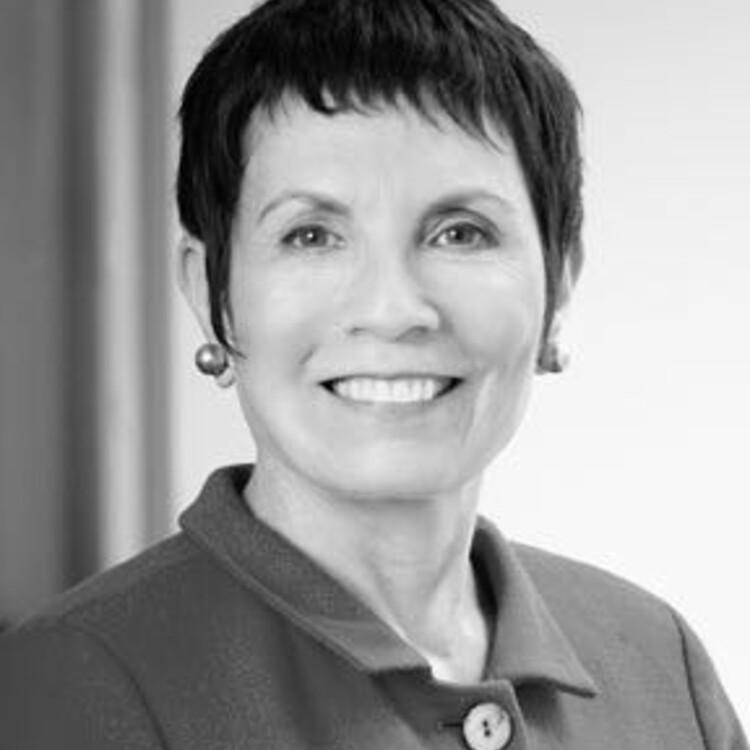
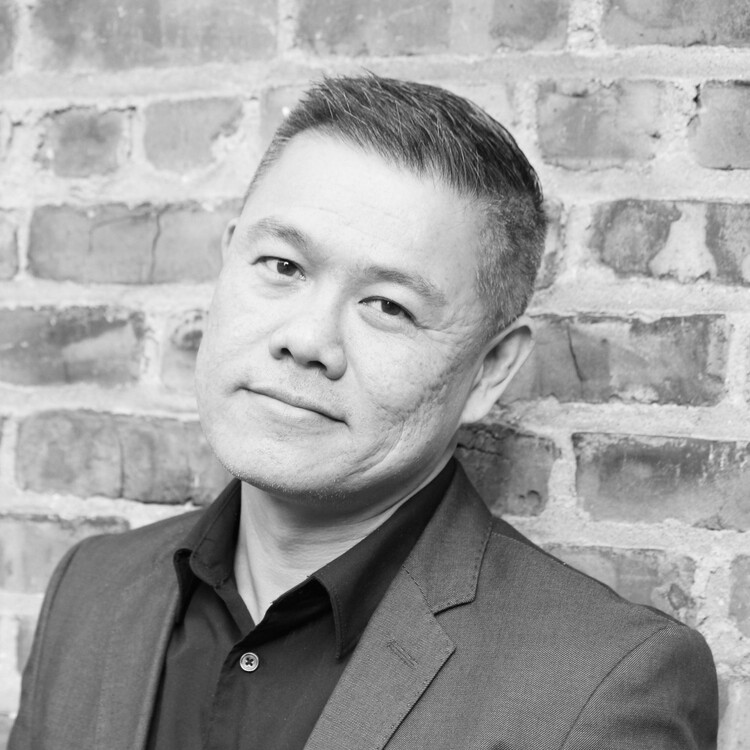
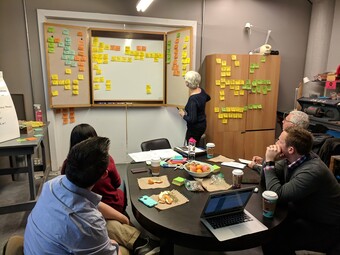


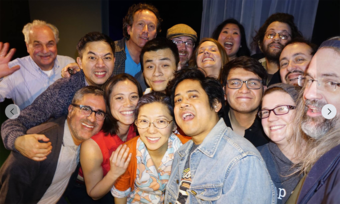
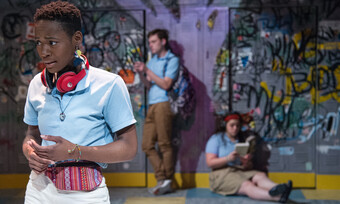


Comments
The article is just the start of the conversation—we want to know what you think about this subject, too! HowlRound is a space for knowledge-sharing, and we welcome spirited, thoughtful, and on-topic dialogue. Find our full comments policy here